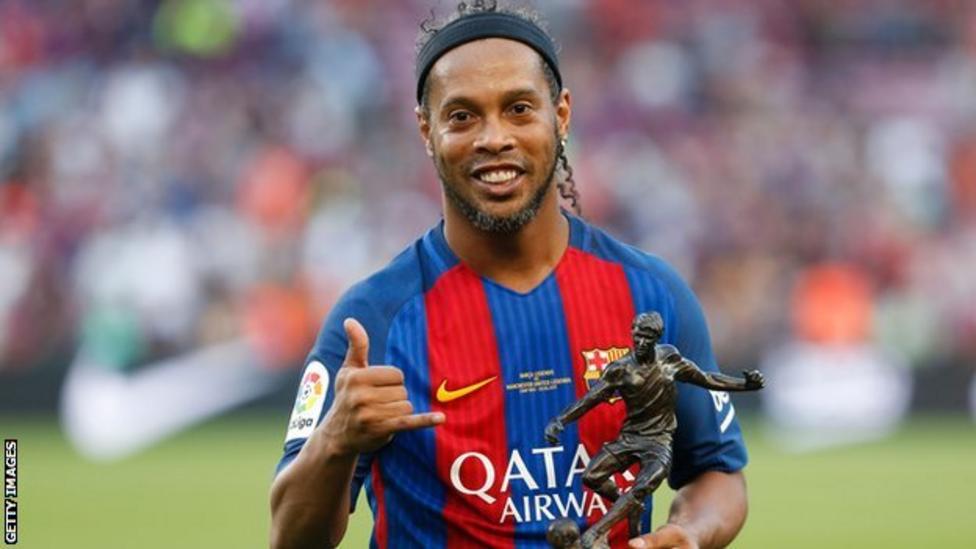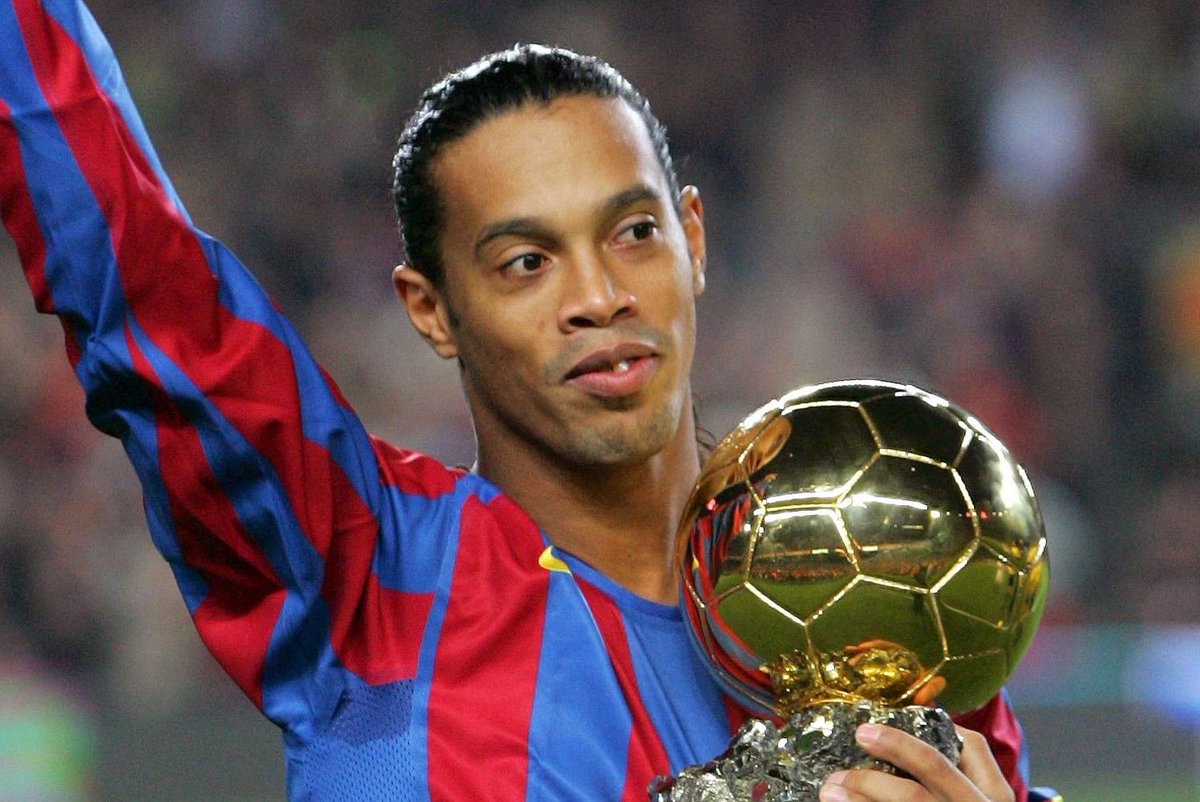What Year Did Ronaldinho Retire? Exploring The Iconic Career Of A Football Legend
When the name Ronaldinho is mentioned, it evokes images of breathtaking football skills, unmatched creativity, and an ability to mesmerize fans worldwide. Many wonder, "What year did Ronaldinho retire?" This question opens the door to a deeper exploration of his illustrious career, achievements, and legacy in the world of football. In this article, we will delve into the life and career of this legendary player, focusing on the year he retired and much more.
Ronaldinho's career is not just about goals and trophies; it is a story of passion, dedication, and extraordinary talent. From his early days in Brazil to his global stardom, Ronaldinho has left an indelible mark on football history. Understanding his retirement year provides context to the end of an era in football.
As we explore the question of when Ronaldinho retired, we will also uncover his contributions to the sport, his influence on modern football, and the impact he continues to have on fans and aspiring players alike. Let's embark on this journey to celebrate one of football's greatest talents.
Table of Contents
- Biography of Ronaldinho
- Early Life and Career
- Club Career
- International Career
- Major Achievements
- What Year Did Ronaldinho Retire?
- Legacy and Influence
- Personal Life
- Key Statistics and Records
- Conclusion
Biography of Ronaldinho
Ronaldinho's Early Life and Background
Ronaldinho, whose full name is Ronaldo de Assis Moreira, was born on March 21, 1970, in Porto Alegre, Brazil. From a young age, Ronaldinho displayed a natural flair for football, influenced by his family’s love for the game. His elder brother, Roberto Assis, was also a footballer, and their father, João Moreira, worked as a steelworker and played semi-professional football.
Growing up in a modest household, Ronaldinho faced challenges but used football as a means to rise above them. His passion for the game was evident early on, and by the age of 14, he was already playing for Grêmio's youth team. This marked the beginning of a journey that would lead him to become one of the most celebrated footballers in history.
Ronaldinho's Biodata
| Full Name | Ronaldo de Assis Moreira |
|---|---|
| Date of Birth | March 21, 1970 |
| Place of Birth | Porto Alegre, Brazil |
| Height | 1.82 m (5 ft 11 in) |
| Position | Attacking Midfielder / Forward |
| National Team | Brazil |
Early Life and Career
Ronaldinho's early career began with Grêmio, where he made his professional debut in 1998. His impressive performances quickly caught the attention of European scouts, leading to his transfer to Paris Saint-Germain in 2001. During his time in France, Ronaldinho honed his skills and developed into a world-class player, setting the stage for his future success.
Club Career
Grêmio and Paris Saint-Germain
At Grêmio, Ronaldinho won the Copa Libertadores in 1997, showcasing his talent on the international stage. His move to Paris Saint-Germain marked his entry into European football, where he continued to shine with his dribbling skills and goal-scoring ability.
Barcelona: The Golden Years
Joining FC Barcelona in 2003, Ronaldinho entered the peak of his career. Under the management of Frank Rijkaard, he became the centerpiece of a formidable team that won two La Liga titles and the UEFA Champions League in 2006. His performances were instrumental in reviving Barcelona's fortunes and establishing them as a dominant force in European football.
Milán and Beyond
In 2008, Ronaldinho moved to AC Milan, where he continued to perform admirably, helping the team win the Serie A title in 2011. Although his time in Italy was not as illustrious as his Barcelona years, Ronaldinho remained a key player until his return to Brazil in 2011.
International Career
Ronaldinho's international career with the Brazilian national team was nothing short of spectacular. He was a key player in Brazil's 2002 World Cup-winning squad, scoring crucial goals and providing assists that led to the team's triumph. His performances earned him the FIFA World Player of the Year award in 2004 and 2005.
Major Achievements
- Two-time FIFA World Player of the Year (2004, 2005)
- UEFA Champions League Winner (2006)
- Two La Liga Titles (2005, 2006)
- FIFA World Cup Winner (2002)
- Copa Libertadores Winner (1997)
What Year Did Ronaldinho Retire?
Ronaldinho officially retired from professional football in 2015. His final club was Fluminense, where he played from 2012 to 2014. Although he had brief stints with other teams after leaving Fluminense, 2015 marks the year he stepped away from professional football. His retirement was a momentous occasion, signaling the end of an era in football.
Legacy and Influence
Ronaldinho's legacy extends beyond his achievements on the pitch. He is remembered for his flair, creativity, and the joy he brought to fans worldwide. His influence on modern football is profound, as he inspired a generation of players with his unique style and approach to the game.
Personal Life
Off the pitch, Ronaldinho is known for his charismatic personality and love for life. Despite controversies surrounding his personal life, he remains a beloved figure in the football community. His passion for music and entertainment has seen him venture into other fields, further cementing his status as a global icon.
Key Statistics and Records
Ronaldinho's career statistics are a testament to his greatness:
- Over 300 goals scored in his professional career
- More than 500 appearances across clubs and national team
- Two-time FIFA World Player of the Year
- Two La Liga titles and one UEFA Champions League title
Conclusion
Ronaldinho's career is a testament to the power of talent, passion, and dedication. The question "What year did Ronaldinho retire?" leads us to reflect on his remarkable journey, from his early days in Brazil to his global stardom. His retirement in 2015 marked the end of an era, but his legacy continues to inspire football fans and players worldwide.
We invite you to share your thoughts and memories of Ronaldinho in the comments below. For more insightful articles on football legends and their journeys, explore our other content. Thank you for joining us on this journey through the life and career of a football icon!


